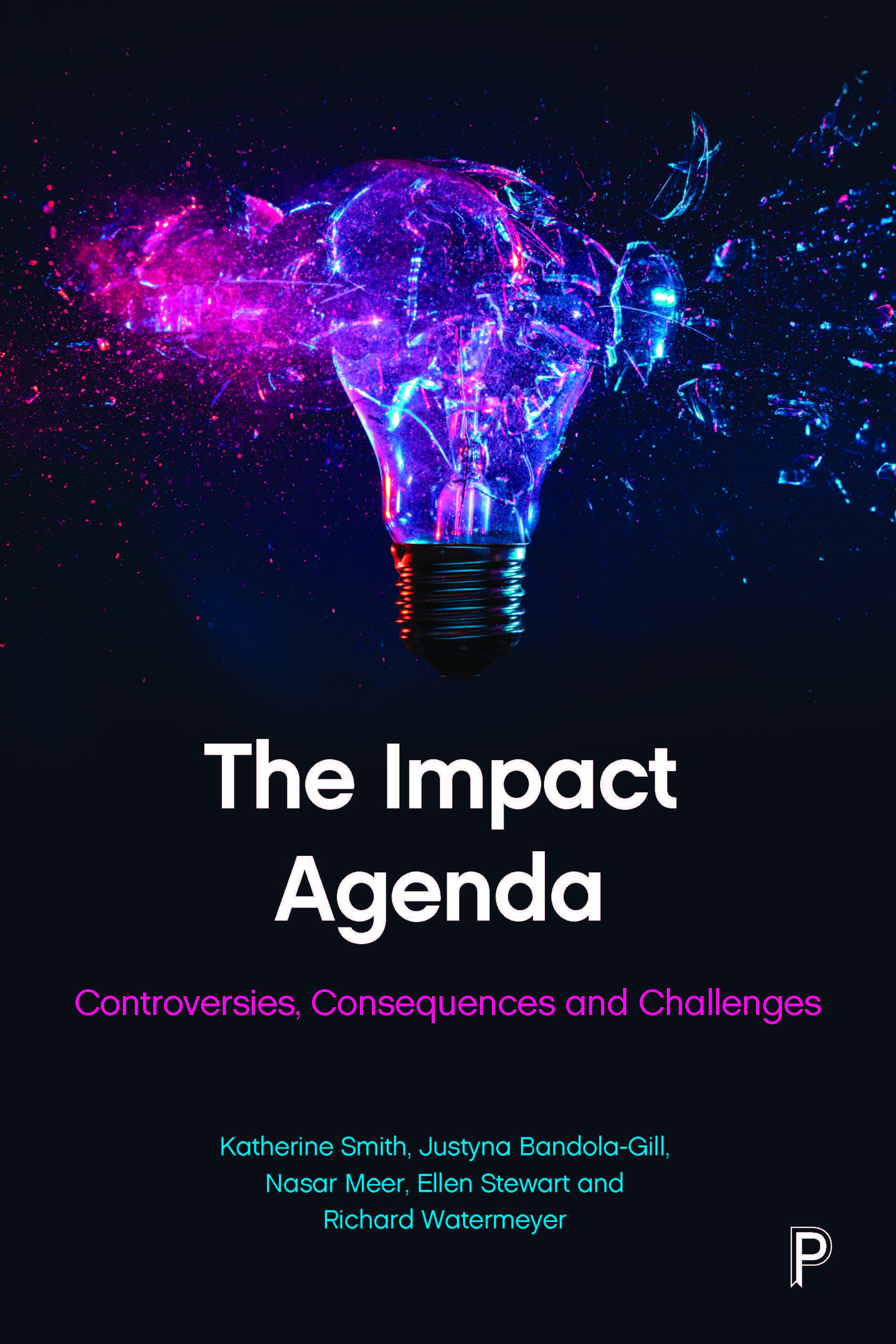Bristol Conversations in Education - The UK’s Impact Agenda: Opportunity to engage or threat to academic freedom?
Professor Katherine Smith, University of Strathclyde and Professor Richard Watermeyer, University of Bristol
Online event. Please register via the link below to receive further details.
This event is part of the School of Education's Bristol Conversations in Education research seminar series. These seminars are free and open to the public.
Hosted by the Centre for Higher Education Transformations (CHET) in the School of Education.
Speakers: Professor Katherine Smith, University of Strathclyde and Professor Richard Watermeyer, University of Bristol
This discussion will draw on the findings of a new book, The Impact Agenda: Controversies, Consequences and Challenges (Policy Press, 2020).
Over the past 15 years, core research funders and higher education institutes across the UK have embraced the idea of ‘research impact’ as a central tenet of academic work. For academics with a commitment to effecting ‘real world’ change, and working collaboratively with members of the public, policymakers, activists, businesses or practitioners, some of these changes feel welcome. However, changes of this nature and scale inevitably bring challenges as well as opportunities. While some academics feel more supported to undertake the externally facing work they always wanted to do, or have newly discovered a propensity for, others feel the kind of work that motivated them to enter academia is now being restricted, in favour of that with more immediate, obvious or ‘sellable’ impacts. The kinds of work that academics have suggested is under threat in UK universities include curiosity-driven, ‘blue skies’ research, theoretically orientated intellectual work, critical analyses of external activities (e.g. of policy decisions and documents), and more broadly a dissenting type of public intellectualism.
This is no small threat. Indeed, for some commentators, the UK’s impact agenda represents a fundamental challenge to the role that universities have traditionally played, and in their view should play, in society; a threat to the ‘academic freedom and institutional autonomy [that give universities] the freedom to critique the moronic machinations of democracy.’ (Anonymous, 2008, cited in Hofmeyr, 2008). From this perspective, the impact agenda is challenging academics’ ability to contribute to social justice and critical citizenship.
The Impact Agenda: Controversies, Consequences and Challenges uses qualitative (interview and documentary) data to explore the various concerns that have been articulated. The talk will argue that the impact agenda is changing academic working lives and practices in the UK, informing the kinds of work and shaping the kinds of academics who are appointed and promoted, albeit with variations across disciplines and institutions. It will conclude by setting out some suggestions for an alternative approach to supporting academics to engage with external audiences.
Katherine Smith is a Professor of Public Health Policy at the Strathclyde School of Social Work and Social Policy and an Honorary Professor at the University of Edinburgh. Her principle research interests are the dynamics of policy change and the relationships between evidence, expertise, policy and practice, particularly for issues relating to public health and inequalities. Her previous books include ‘Beyond Evidence-Based Public Health Policy: The Interplay of Ideas’ (Palgrave Macmillan, October 2013), and British Medical Association award-winning edited collection, ‘Health Inequalities: Critical Perspectives’ (Oxford University Press 2016). Kat is currently Co-Editor-in-Chief of Evidence & Policy and Co-Editor of the book series Palgrave Studies in Science, Knowledge & Policy.
Richard Watermeyer is Professor of Education in the School of Education at the University of Bristol. He is by training and orientation a sociologist of education with interests in higher education policy, practice and pedagogy. Richard's work is primarily concerned with changing contextualizations of higher education, particularly as relate to technologies of governance, and their effect on the work and identities of academics and wider higher education community. His recent books include: Competitive Accountability in Academic Life: The Struggle for Social Impact and Public Legitimacy (Cheltenham: Edward Elgar); The Impact Agenda: Controversies, consequences and challenges (Bristol: Policy Press); Pedagogical Peculiarities: Conversations at the Edge of University Teaching and Learning (Boston/Leiden: Brill Sense) and the forthcoming Handbook on Academic Freedom (Cheltenham: Edward Elgar). Richard has held academic appointments at the universities of Bath, Warwick, Surrey, and Cardiff and was the first social scientist to be seconded into the Office of the Chief Scientific Adviser for Wales.
CATCH UP ON THIS EVENT
Contact information


